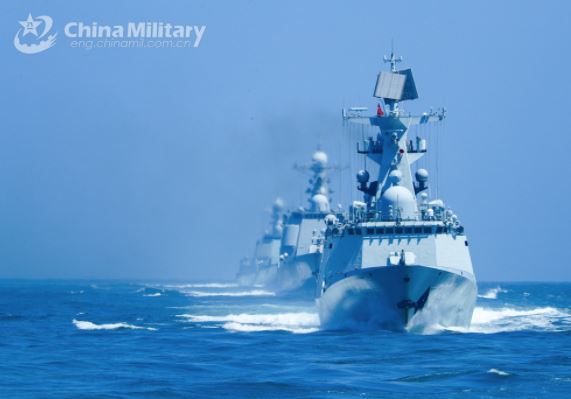
Guest post by Lawrence Sellin, PhD
There is one immediate action the US can take to prevent a Chinese invasion of Taiwan.
According to the official website of the U.S. military health system, humanitarian assistance and disaster response (HADR) are core capabilities of the Department of Defense, which has quickly deployed relief personnel and resources to all corners of the globe:
- In Operation TomodAchi, after the Japanese earthquake and tsunami in 2011—U.S. forces were instrumental in delivering food, water, blankets, clothing, and medical supplies to support Japanese civilian and military partners.
- During Typhoon Haiyan in the Philippines, Service Members were on the ground working with the Philippine military to provide essential medical treatment and supplies.
- During the Ebola epidemic in West Africa, Service Members were involved in constructing treatment centers and providing logistical support to stem the spread of infection.
- In the aftermath of the devastating 2015 Nepal earthquake, U.S. military personnel were instrumental in supporting relief efforts with transportation and medical treatment, and where previous training exercises with the Nepalese military significantly improved their capacity to respond to the crisis.
In 2007, I commanded such a humanitarian mission to the nation of Mali in West Africa, which involved a wide variety of U.S. active duty and military reserve medical personnel in conjunction with special operations forces operating against Al-Qaeda in the Islamic Maghreb.
In the last month, two important meetings took place ostensibly to address the economic and military threat posed by China.
On September 24, 2021, amid much media coverage, the first in-person meeting of Quadrilateral Security Dialogue or “Quad” comprised of the United States, India, Japan and Australia met in Washington, D.C.
The Quad meeting ended with a joint statement reaffirming the four nations’ commitment to a “free and open” Indo-Pacific region, but without even using the word “China” or containing any statement on military cooperation and China’s increasingly aggressive economic and military posture.
Less well-publicized, but perhaps more consequential, was an August 27th virtual “security” discussion held between two Japanese Liberal Democratic Party politicians, both defense specialists, and two counterparts from Taiwan’s ruling Democratic Progressive Party.
Even private discussions between politicians as those held on August 27th would have been unthinkable just five years ago.
As described in Grant Newsham’s recent article:
One announced outcome of the Aug. 27 meetings was to have Japanese and Taiwan Coast Guards cooperate on humanitarian assistance and disaster relief (HADR).
Such an approach provides a foundation for similar unprecedented, but much needed cooperation between the United States and Taiwan under the guise of joint humanitarian operations.
Joint U.S. – Taiwan HADR exercises should be initiated eventually leading to a joint operations center in Taiwan manned by a U.S. personnel with military experience.
While working for IBM’s Network Centric Operations business practice, we developed the software and procedures for a successful HADR operations center.
In crisis situations, it is imperative to rapidly assemble multinational coalitions and cross-organizational teams with the expertise required to respond effectively. These teams need the ability to coordinate and communicate with each other across jurisdictional boundaries.
The responsibilities of such a center would be to address the critical command and control challenges associated with multinational collaboration and data exchange in HADR or potential military emergencies.
The rapid establishment of a joint U.S. – Taiwan HADR operations center in Taiwan would have an enormous psychological impact both on Taiwan and the People’s Republic of China and provide reassurance to the Quad and other nations of the U.S. commitment to a “free and open” Indo-Pacific region.
Lawrence Sellin, Ph.D. is retired U.S. Army Reserve colonel and a veteran of Afghanistan and Iraq. He had a civilian career in international business and medical research. His email address is [email protected].
